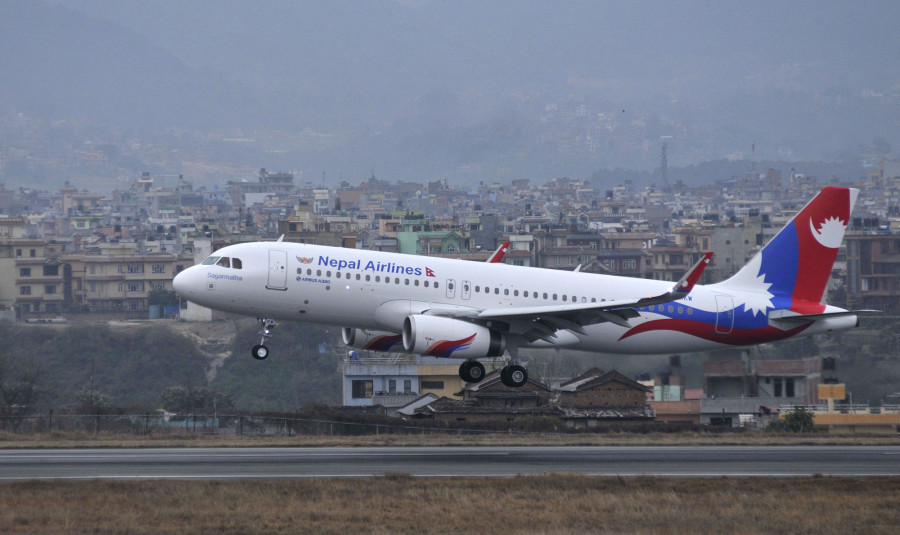Editorial
Turbulence ahead
Nepal Airlines appearing on Covid-19 high-risk lists will ruin the carrier’s reputation.
Flying in the face of fundamental safety protocols, some Nepal Airlines passengers carrying Covid-19 negative certificates have tested positive at destination airports. After facing a ban, twice, for carrying passengers who were were found to be infected upon arrival in Hong Kong, the national flag carrier has now come under the radar of the United Arab Emirates as the Gulf state has raised concerns about the authenticity of Covid-19 test certificates of the passengers. Nepal’s civil aviation regulatory body has said it has taken cognisance of these incidents.
Nepal Airlines has almost always struggled when it comes to its image as it is in the news for all the wrong reasons, including being a hotbed of corruption. The pandemic caused a major setback for the carrier as international flights remained suspended for months although it made do with some chartered flights. Regular flights have resumed in limited routes now, but the carrier has already run into controversy for carrying passengers who test positive upon reaching destination countries. Nepal Airlines may not be at fault when it comes to the test results per se, but it seems to have failed to recognise the importance of the safety protocol.
Although Nepal has implemented a stringent passenger safety protocol, requiring all incoming passengers to present Covid-19 negative certificates, no mandatory provisions have been set for departing ones from the country’s sole international airport. This is pretty much against health safety protocols.
After the United Arab Emirates officially reopened its airspace and permitted travellers to visit Dubai for tourism from July 7, it said all tourists must undergo a polymerase chain reaction test, not exceeding 96 hours before their scheduled departure to Dubai International Airport, at officially recognised testing centres at home. Travellers must present print copies of negative Covid-19 test results at the destination airport. But Nepal Airlines seems to have failed to pay attention to what actually constitutes ‘officially recognised testing centres’.
The carrier surely asks passengers to bring Covid-19 negative test certificates, but it accepts any negative test certificates from passengers, irrespective of where they are issued from. That’s where the catch lies. It’s not clear if passengers were given faulty test results or they deliberately acquired negative test certificates. Nor is there any evidence to put blame on the carrier. But since foreign governments have raised an alarm, the Nepali carrier may appear to be complicit.
After Hong Kong found some passengers of Nepal Airlines to have been infected upon their arrival despite carrying negative certificates, Chinese University Professor David Hui Shu-cheong, a government adviser on the pandemic, questioned the veracity of the testing done in Nepal. ‘Maybe their tests are not accurate or sensitive enough, or perhaps people didn’t take it seriously enough when giving samples’, the professor told the South China Morning Post.
Nepal Airlines officials admit that the incidents in Hong Kong and the recent alarm raised by Dubai are serious and that they do not bode well for the national flag carrier. They say if the government authorises labs for airline passengers, cases of fake negative certificates, if that is indeed the case, could be avoided. However, questions remain why Nepal Airlines itself has not taken any initiative on its own. The carrier could have coordinated with government agencies to ensure that it carries only those passengers who indeed have negative results. What has been reported so far suggests that either the kits at the labs where the passengers had tested negative were faulty or the labs were ‘selling’ fake negative certificates. In any case, any foreign government putting Nepal Airlines on the high-risk list does not do any good to the carrier’s reputation. And such incidents also tarnish the country’s image.




 20.12°C Kathmandu
20.12°C Kathmandu













